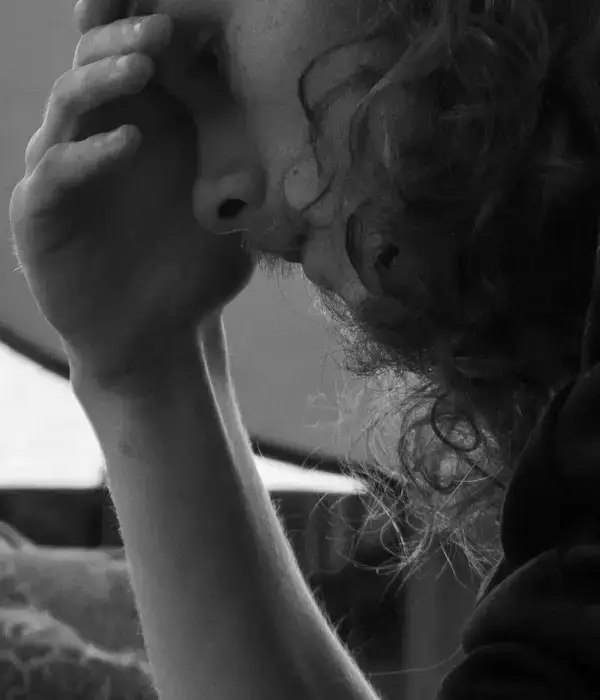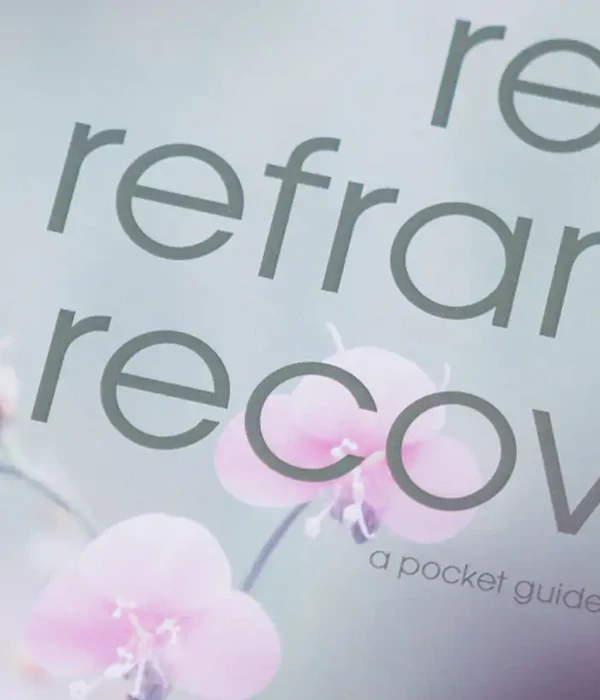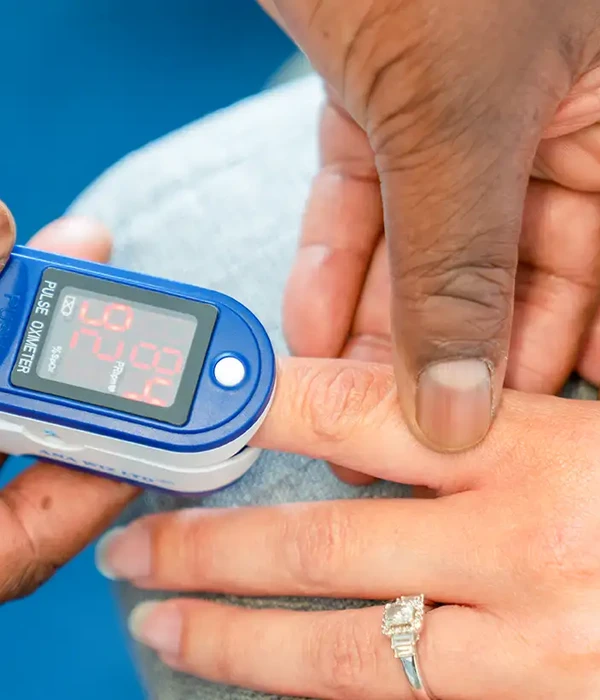DMT Addiction Treatment
Many people experiment with hallucinogens like DMT, but for some, use can develop into patterns that feel difficult to control. If you or someone you care about is struggling, know that effective treatment is available.
Addiction can take a toll on both your mind and your daily wellbeing, but recognising the problem early is a powerful first step. The right hallucinogen addiction support can help you move toward healing and a healthier, more balanced future.

Take the First Step Towards Recovery
Steps Together offers personalised support and proven treatments, providing the care, guidance and encouragement you need to move forward with confidence and build a healthier future.

Understanding DMT and Its Effects
DMT, also known as N, N-dimethyltryptamine, profoundly affects your mind and perception. You may hear it referred to as the ‘spirit molecule’ due to its profound impact on thoughts, feelings, and senses. DMT is a naturally occurring chemical found in some plants and animals, and produced in small amounts by the human body
This substance is best known as the main active ingredient in ayahuasca, a traditional South American brew used for spiritual rituals. As a tryptamine compound, DMT is structurally similar to serotonin, a chemical in the brain linked to mood and perception. People use DMT by smoking, snorting, or drinking it in ayahuasca.
Hallucinogenic and Psychedelic Properties
The effects of DMT are both visual and emotional. Some report a sense of euphoria, spiritual insight, or mystical experiences, which is why DMT gets called the ‘spirit molecule.’ Others may feel anxiety, confusion, or fear, especially with higher doses.
You may lose track of time, with experiences that seem to last hours but only take minutes. Physical effects may include increased heart rate and blood pressure. The intensity of DMT’s psychedelic properties sets it apart from many other drugs.


Is DMT Addictive?
DMT is not considered physically addictive in the same way as substances like opioids, alcohol, or other drugs. It does not usually cause physical withdrawal symptoms, and most people don’t lose control over their DMT use.
However, psychological dependence is possible. Some individuals may use DMT frequently to escape reality, seek spiritual experiences, or cope with emotional pain. This pattern can lead to disruption in daily life, mental health struggles, and impaired day-to-day functioning.
DMT Addiction Treatment
DMT addiction treatment often includes detoxification, therapy programmes, and support for long-term recovery. Choosing the right approach depends on your needs, the severity of use, and any other mental health concerns.
Detoxification and Medical Supervision
Detoxification is the first key step in substance abuse treatment. While DMT does not usually cause strong physical withdrawal, stopping use suddenly can bring psychological symptoms like anxiety, confusion, or mood swings.
Under medical supervision, you are monitored for any negative effects as your body clears the drug. Supervision is especially important if you have used several drugs or have a long history of use, as risks can increase. Medical staff can help manage any mental health symptoms and make sure you stay safe.
Outpatient Rehab
Outpatient rehab lets you live at home while attending regular therapy sessions. These sessions may be several times a week and include one-on-one counselling, group therapy, and education about addiction.
An outpatient treatment programme works well if you have a stable home and only mild to moderate drug abuse. This approach is flexible and allows you to keep up with work, school, or family duties while getting help. You must be committed, as triggers and temptations are present in your daily life.
Inpatient Rehab
Inpatient treatment involves staying at a treatment centre day and night. This treatment plan gives you structure and support, especially if you have used DMT heavily or with other drugs. Your daily routine includes counselling, group therapy, and sometimes medication to ease mental health disorders.
Being in a supervised environment means you are away from triggers and have regular support. Therapists may use evidence-based methods such as cognitive behavioural therapy to help you understand and change harmful patterns. Medical staff are available to address any mental or physical health needs.
Aftercare
Aftercare is the follow-up support that comes after you finish a rehab programme. This ongoing support is important for staying drug-free and managing any future challenges. Aftercare may include regular counselling, support groups like Narcotics Anonymous, or sober living arrangements.
These services help build a strong support network and give you tools to deal with cravings and stress. Some aftercare plans also focus on job training or mental health therapy. Having a plan in place lowers your risk for relapse and helps you build a balanced routine.
Other drug addictions we treat at our rehab centre

DMT Withdrawal and Long-Term Effects
DMT does not cause classic withdrawal in the same way as alcohol or opioids. After you stop using DMT, there are very few or even no physical withdrawal symptoms. Most people do not experience cravings or dependence.
However, some users show signs of psychological discomfort, such as anxiety, confusion, or restless thoughts. These sensations may last a few days. Most detoxification programmes will focus on comfort rather than managing severe withdrawal effects. If you use DMT together with other drugs, withdrawal can be more complicated.
Mental Health Effects of DMT
Taking DMT could result in Hallucinogen Persisting Perception Disorder (HPPD). You might begin to experience flashbacks or visual distortions, such as seeing halos, patterns, or colours, even weeks or months after taking the drug.
After DMT use, some people may develop ongoing mental health problems. These may include anxiety, depression, paranoia, or even persistent psychosis. The risk is higher if you already have a history of mental illness or if you use other hallucinogens frequently. Long-term effects can also include trouble with focus, memory, or mood.

DMT and Its Influence
Ayahuasca is a traditional brew made from plants containing DMT and other compounds. Indigenous groups in South America have used it for centuries during spiritual rituals and healing ceremonies. These rituals often involve a shaman and are conducted in structured settings that are believed to protect participants and guide their experience.
LSD and other psychedelic drugs like psilocybin are often compared to DMT because of their effects on perception and mood. All three mostly act on serotonin receptors in the brain, especially the 5-HT2A subtype, which influences how you think and feel during the experience.
DMT is not currently approved for medical use in mainstream healthcare. That said, growing research is exploring its potential in psychedelic-assisted therapy. Some early studies suggest that DMT, when used in controlled, clinical settings, may help treat some mental health conditions.
DMT Treatment Options
Treating DMT abuse often involves different therapeutic methods tailored to your specific needs. These approaches help you manage psychological addiction and mental health symptoms that come from hallucinogenic substances like DMT. Rehab for DMT may involve:
Behavioural Therapy
Cognitive Behavioural Therapy (CBT) is a leading approach for treating substance use disorder. CBT focuses on helping you recognise and change thoughts and behaviours linked to DMT use.
Dialectical Behaviour Therapy (DBT) is a type of therapy originally developed for people who struggle with strong emotions. For DMT addiction, DBT helps you manage the emotional ups and downs that sometimes follow drug and alcohol use.
EMDR
Eye Movement Desensitisation and Reprocessing (EMDR) is a unique therapy most often used to treat trauma. However, it can also help if your DMT addiction is linked to past traumatic experiences or if you experience disturbing hallucinations.
EMDR involves recalling distressing memories or hallucinations while focusing on alternating sounds or movements, like moving your eyes back and forth. This process can help you process memories or feelings that fuel addictive behaviours.
Motivational Interviewing
Motivational Interviewing (MI) is a counselling method that helps you strengthen your motivation to change addictive behaviours. This is especially helpful if you feel unsure about whether you want to stop using DMT.
During MI, the therapist guides a non-judgemental conversation about your goals, values, and worries about drug use. You are not given advice or told what to do. Instead, you are encouraged to weigh the pros and cons of DMT use yourself.

DMT Rehab Can Help You Recover
If you or someone you care about is struggling with DMT use, it’s important to know that recovery is possible. While DMT may not cause physical dependence like some other substances, psychological and behavioural patterns can still develop that interfere with daily life.
Addiction treatment programmes provide the tools and support needed to address underlying issues, manage cravings, and build healthier coping strategies. With a combination of therapy, education, and personalised care, lasting recovery is within reach. At Steps Together, we’ll help you or your loved one build a life free from dimethyltryptamine.
Frequently Asked Questions
What are the common signs of dependency on hallucinogenic substances?
You might notice withdrawal from social activities, changes in mood, or a growing preoccupation with using the substance. Some people experience anxiety, difficulty sleeping, or strong cravings when they stop using.
What therapeutic approaches are effective for hallucinogen addiction management?
Cognitive behavioural therapy is often used to help change patterns of thinking and behaviour. Motivational interviewing encourages you to find your reasons for changing drug use.
Are there any risks associated with the sudden cessation of hallucinogen use?
Quitting hallucinogens like DMT rarely causes severe physical withdrawal symptoms. However, you may experience anxiety, mood swings, or sleep problems. Sudden cessation can bring up intense psychological effects, so seeking help from a professional is advised.
Can psychological dependence on psychedelics be treated successfully?
Yes, psychological dependence can be treated. Therapy helps you understand your behaviour and develop healthier coping skills. Continued support, such as counselling or group therapy, is often key for long-term changes and reducing the risk of relapse.
How long does the rehabilitation process for psychedelic substances typically take?
The length of treatment depends on your needs, the severity of use, and the presence of mental health issues. Some people see improvement in a few weeks, while others attend programmes lasting several months. Continuing care and follow-up support are important parts of the rehabilitation process.
What support networks are available for individuals recovering from the misuse of psychoactive compounds?
Recovery groups, counsellors, and online forums offer valuable support and guidance. Many addiction clinics provide group therapy sessions as well as individual counselling. Joining a support network gives you a community and helps maintain progress over time.





